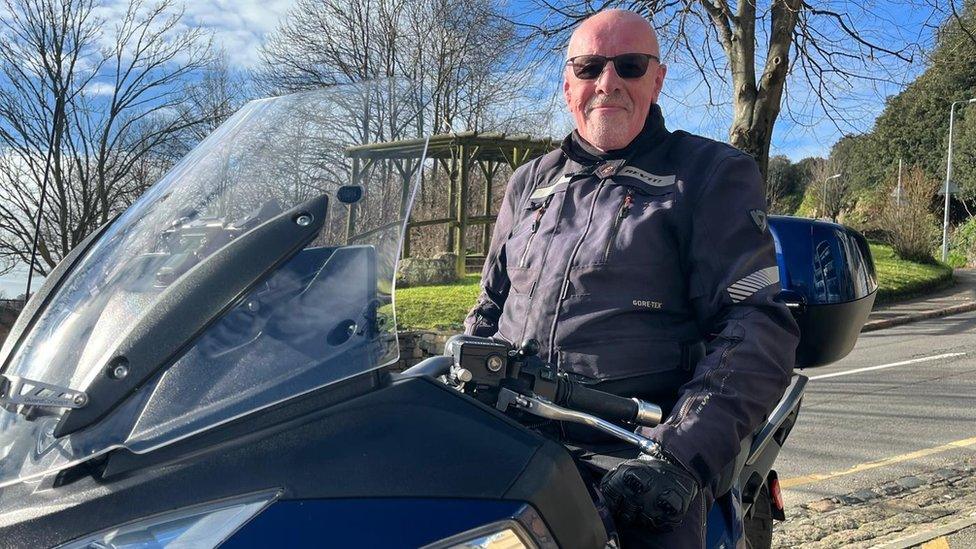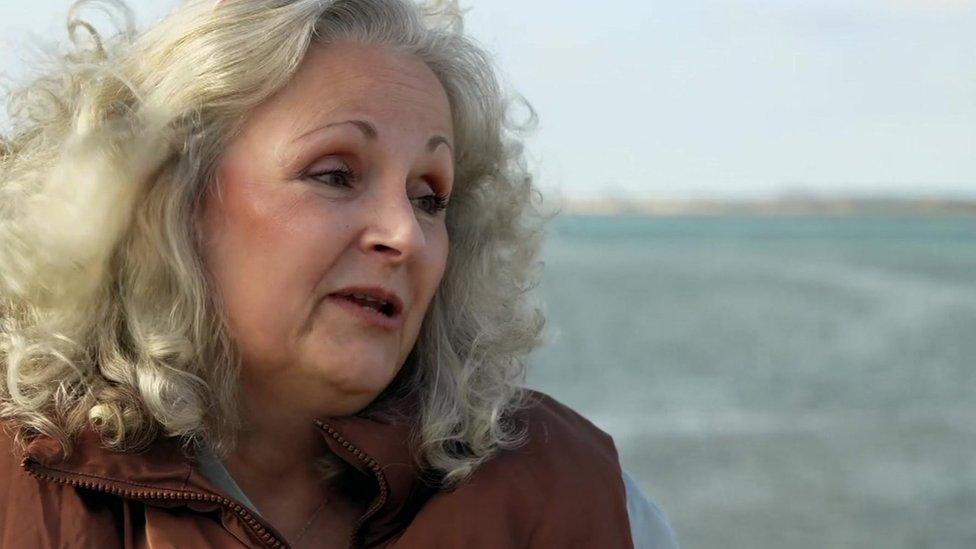CAR T-cell therapy in Southampton hailed by cancer patient
- Published

Peter Garland has been able to resume his passion for motorbike riding
A grandfather is celebrating being cancer free after he was among the first patients offered a new treatment.
Peter Garland's lymphoma returned last year following chemotherapy but he was given chimeric antigen receptor T-cell (CAR T-cell) therapy.
It involves collecting and using the patient's own modified immune cells to treat their condition.
He said, following the treatment at University Hospital Southampton (UHS), he had now "got my life back".
Seventy-one year-old Mr Garland, from Jersey, was among 21 patients at UHS in the past 12 months who have been given CAR T-cell therapy.
The potentially high-risk therapy works by reprogramming the patient's own immune system which is then used to target the cancer.
It is currently offered at UHS to patients whose cancer has returned and have limited options for further treatment.
CAR T-cell therapy has been proved to be effective for some blood cancers although not all outcomes are positive.
It is regarded as complex and high risk with potentially serious side effects. The patient has to be held in isolation for several weeks.

How does CAR T-cell therapy work?
T cells, a type of white blood cell, are taken from the patient's blood in a process called apheresis
They are then genetically engineered in the lab to become CAR T-cells - CAR stands for chimeric antigen receptor
Once these cells multiply, they are put back into the patient's bloodstream in a drip
The aim is for the CAR T-cells to then recognise and attack a specific protein in the cancer cells in the body for a long period of time
Source : Cancer Research UK

Southampton is one of six new centres offering the treatment on the NHS, the only one in the south of England outside London.
More than 1,300 patients have received CAR T-cell treatment via the NHS nationwide.
Mr Garland, a grandfather of two, said the treatment was "absolutely outstanding".
He said: "I knew there were risks. When you are in that position, you've got cancer and there's a possible cure, you take it.
"There are one or two side effects, but generally I've got my life back
"I can't praise the teams enough. The treatment was absolutely outstanding."
He has since returned to his work as a watch repairer in Jersey and has also been able to enjoy his lifelong passion for motorbike riding once again.
Sara Main, lead nurse for bone marrow transplants and cell therapy at UHS, said Mr Garland's successful outcome was "fantastic".
"These patients have very few treatment options available if the disease comes back after their initial therapy," she said.
"CAR T therapy is a really important additional tool we can offer patients hope of a real durable remission from their disease."

Follow BBC South on Facebook, external, X, external, or Instagram, external. Send your story ideas to south.newsonline@bbc.co.uk, external.
Related topics
- Published25 October 2023
- Published7 January 2022
